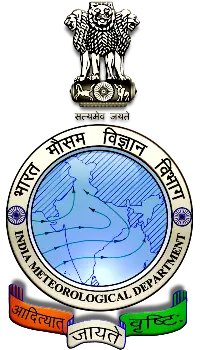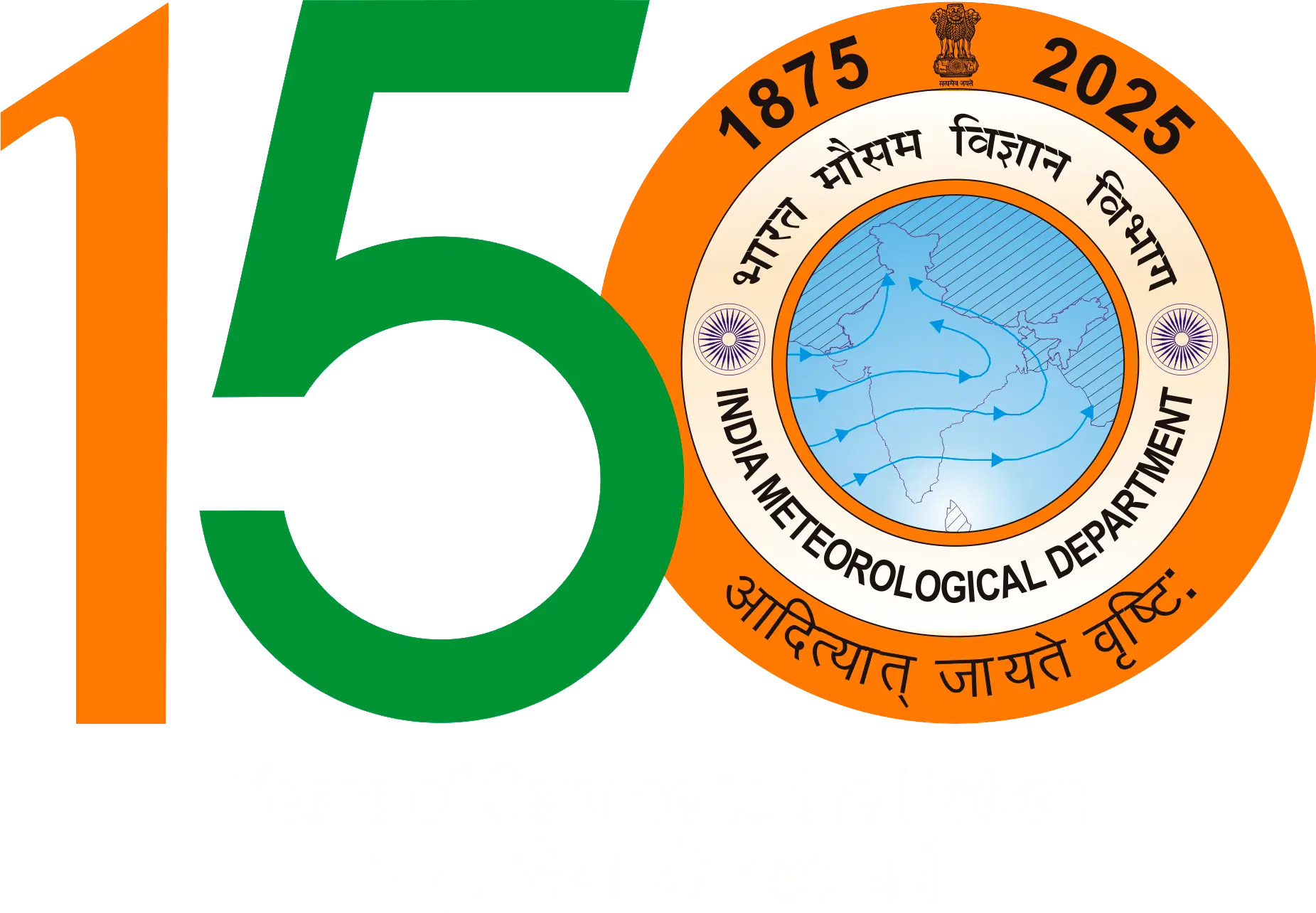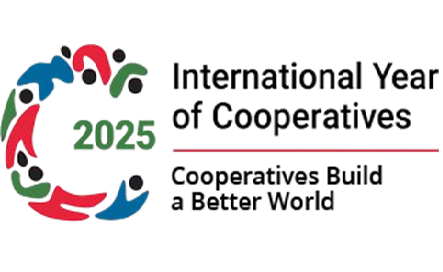Environmental monitoring and service
Environment Monitoring and Research Center, a division of IMD conducts monitoring and research related to atmospheric constituents that are capable of forcing change in the climate of the Earth, and may cause depletion of the global ozone layer, and play key roles in air quality from local to global scales. EMRC also provides specific services to Ministry of Environment and Forest & Climate Change and other Government Agencies in the assessment of air pollution impacts. IMD contributes in the field of atmospheric environment to the World Meteorological Organization (WMO) Global Atmosphere Watch (GAW) programme. The main objective of GAW is to provide data and other information on the chemical composition and related physical characteristics of the atmosphere and their trends, required to improve understanding of the behavior of the atmosphere and its interactions with the oceans and the biosphere.
Ozone Monitoring Network
National Ozone Centre of IMD is designated as secondary regional ozone centre for Regional Association II (Asia) of World Meteorological Organization. The centre maintains a network of ozone monitoring stations including Maitri and Bharati in Antarctica.
- Total Columnar ozone measurement using Brewer and Dobson spectrometer at five locations.
- Surface Ozone monitoring through a network of ten stations.
- Measurement of Vertical Distribution of Ozone using IMD Ozonesonde.
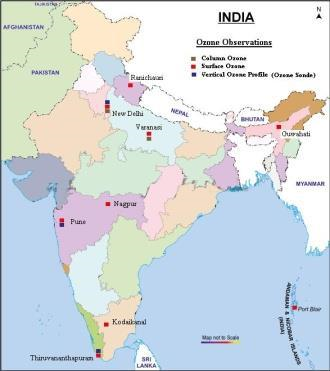
Precipitation and Particulate Matter Chemistry Monitoring
IMD is monitoring Precipitation Chemistry through a network of eleven stations since 1970s. The precipitation chemistry network includes: Allahabad, Jodhpur, Kodaikanal, Minicoy, Mohanbari, Nagpur, Portblair, Pune, Srinagar, Visakhapatnam and Ranichauri. The rainwater samples collected from these stations are analyzed in Precipitation Chemistry Laboratory at IMD, Pune which is equipped with Ion-chromatograph, UV-VIS Spectrophotometer, Atomic Absorption Spectrophotometer, Semi-micro Balance, pH and Conductivity Meter. High Volume Samplers for collecting PM10, PM2.5 and Total Suspended Particulate Matter (TSP) have been installed at Delhi, Ranichauri, Pune and Varanasi. The filter papers are being analyzed for chemical characterization of aerosols.
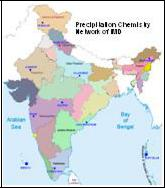
Aerosol Monitoring Network
Environment Monitoring and Research Center, India Meteorological Department has established Aerosol Monitoring Network by installing skyradiometer at twelve locations. The network is used to measure optical properties of aerosols such as Aerosol Optical Depth, Single Scattering Albedo, Size Distribution, Phase Function etc. The network stations are: New Delhi, Ranichauri, Varanasi, Nagpur, Pune, Port Blair, Visakhapatnam, Guwahati, Kolkata, Jodhpur, Rohtak, Thiruvananthpuram.

Black Carbon Monitoring Network
Black Carbon Monitoring Network of 16 stations for measurement of Spectral Aerosol Absorption Coefficient, Equivalent Black Carbon Concentration and bio-mass burning component has been established during 2016. The names of the stations are New Delhi, Ranichauri, Varanasi, Nagpur, Pune, Port Blair, Visakhapatnam, Guwahati, Kolkatta, Jodhpur, Bhuj, Trivandrum, Ranchi, Amini, Chandigarh and Srinagar.
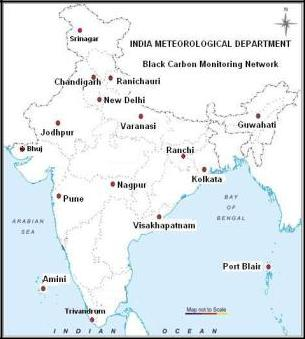
Multi-wavelength Integrating Nephelometer Network
IMD has established a network for measurement of aerosol scattering coefficient at twelve locations is under installation. The network stations are: New Delhi, Ranichauri, Varanasi, Nagpur, Pune, Port Blair, Visakhapatnam, Guwahati, Kolkata, Jodhpur, Bhuj, Thiruvananthpuram.
System for Air quality Forecasting And Research (SAFAR)
The system for air quality forecasting and research (SAFAR) has been operationalized by IMD to monitor and forecast air quality in Delhi. This is a joint project of IITM and IMD. The system is also operational at Pune, Mumbai and Ahmedabad. All major air pollutants (PM2.5, PM10, Ozone, CO, NOx (NO, NO2), SO2, BC, Methane (CH4), Non-methane hydrocarbons (NMHC), VOC’s, Benzene, Mercury), solar radiation and meteorological parameters are measured at ten air quality station installed in each city. SAFAR provides location specific information on air quality in near real time and its forecast 1-3 days in advance.

